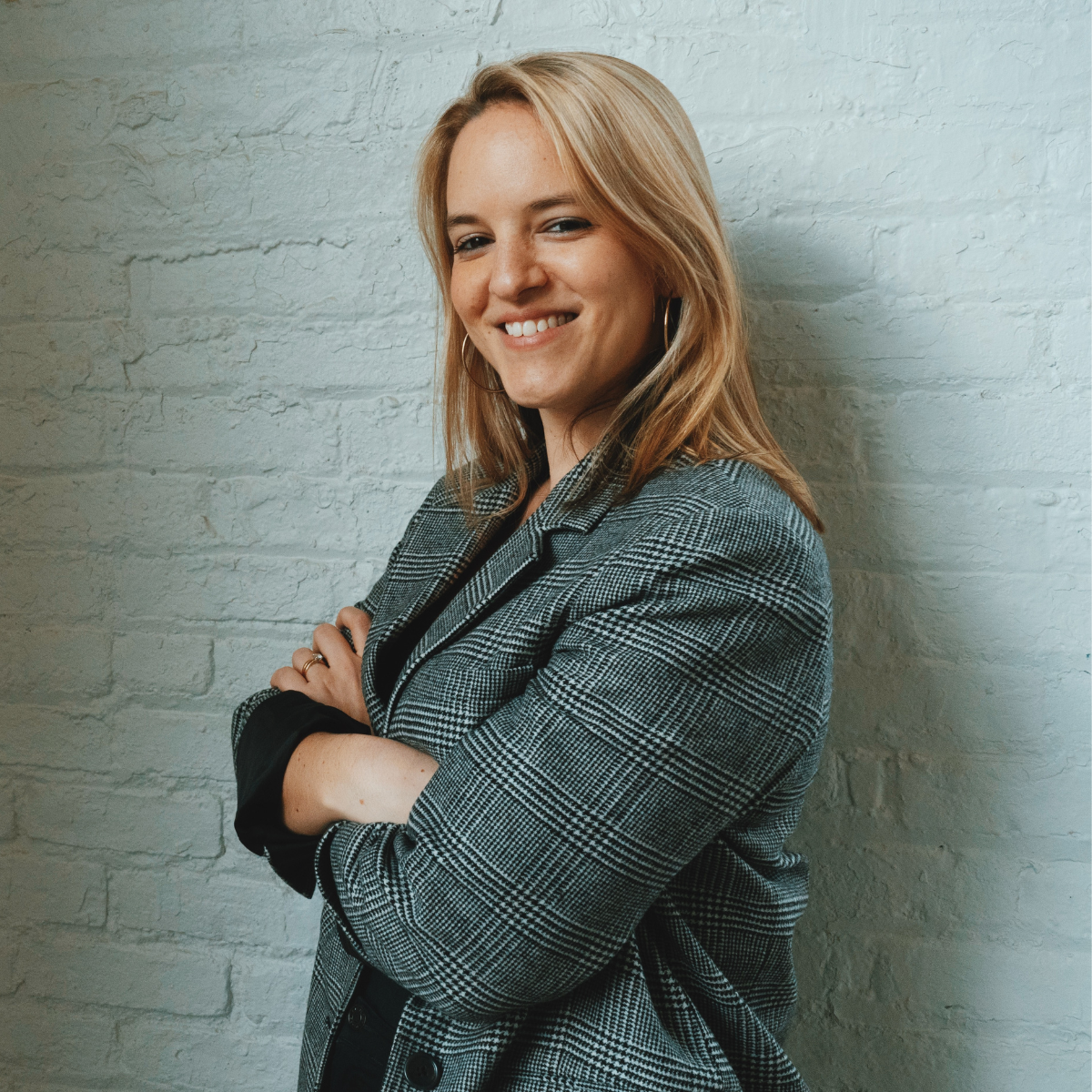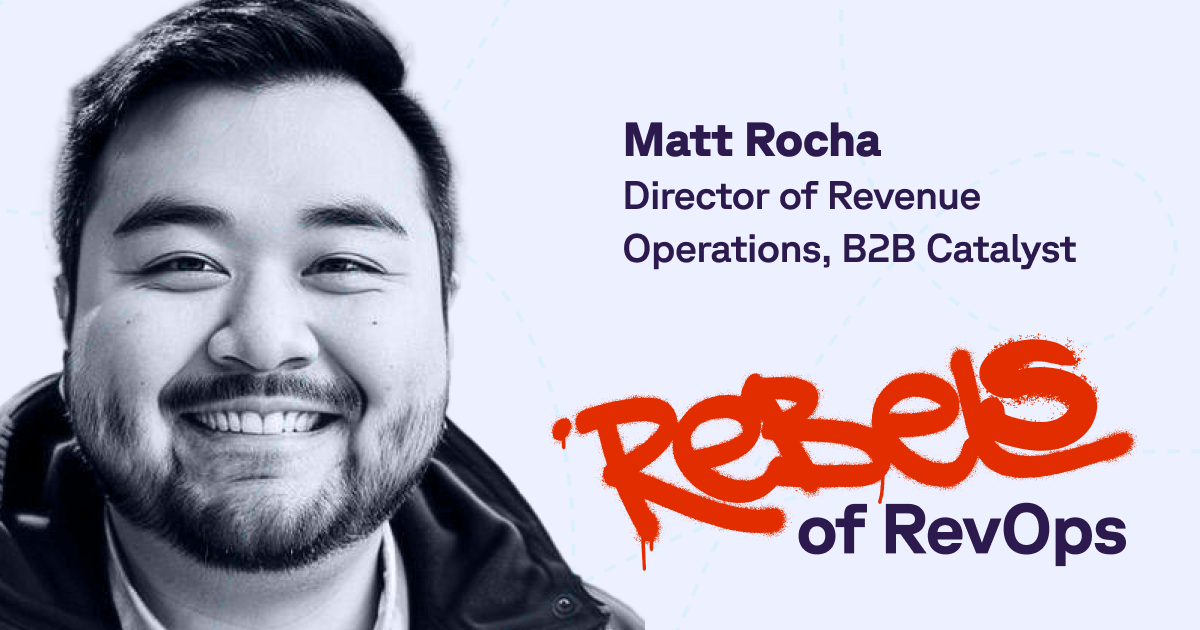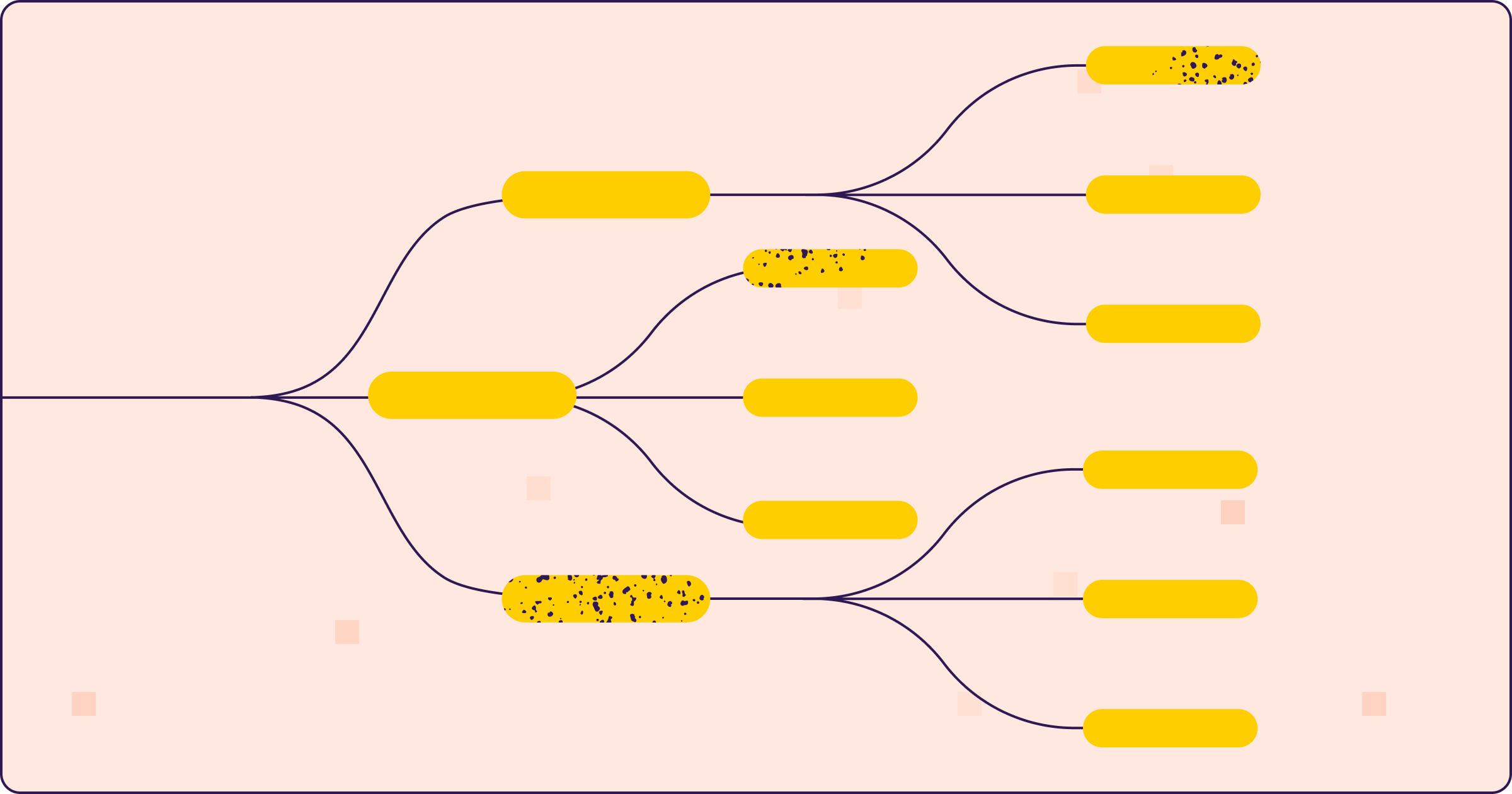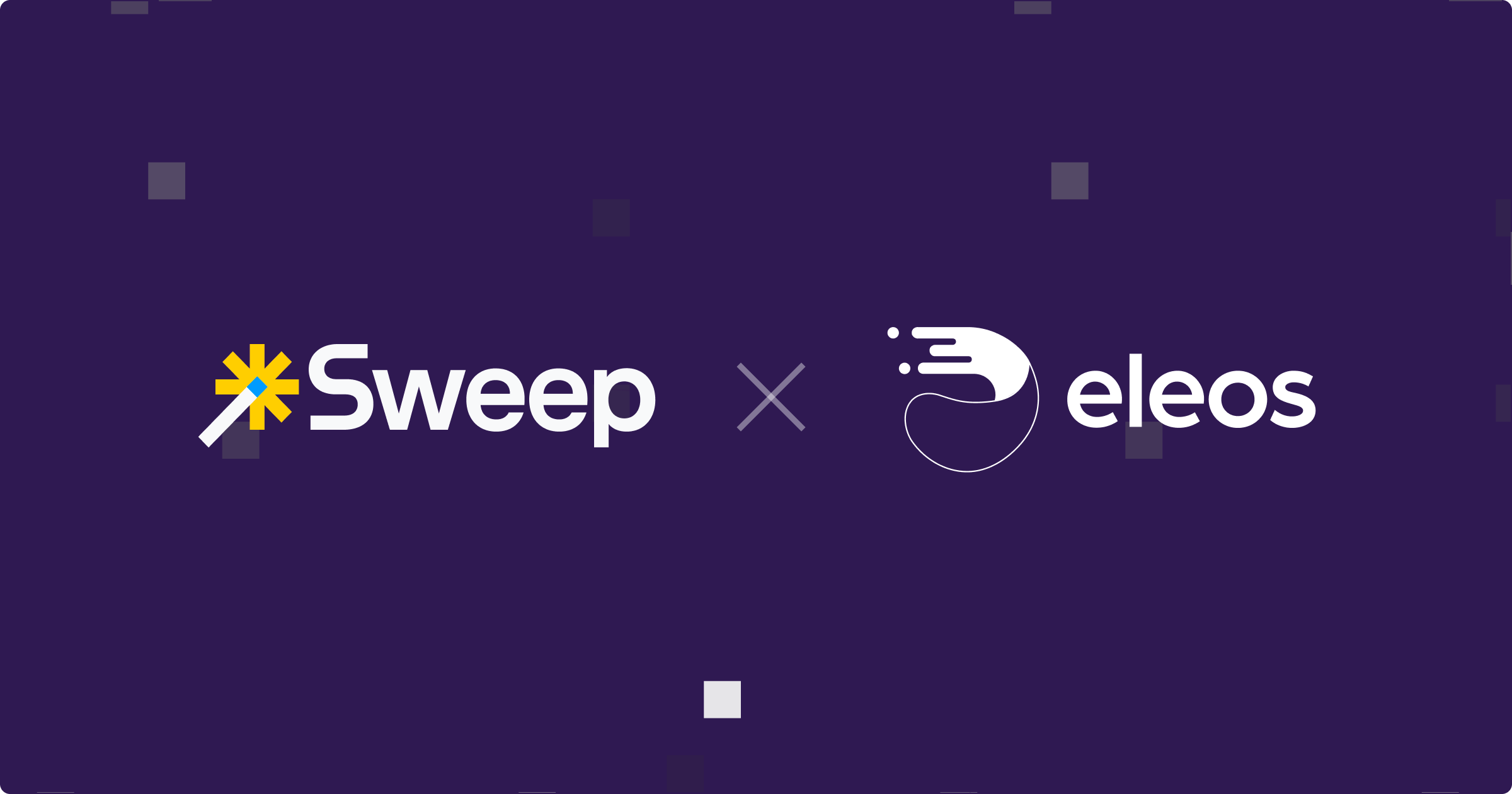
Here at Sweep, we're excited to be launching a new interview series highlighting people who said "hell no" to the status quo and established themselves as innovators in the Revenue Operations space. Some of these folks started in RevOps before it was a 'thing.' Others built teams with people from entirely different backgrounds or got creative with limited resources or adopted technology before it became popular. And some simply forged their own path forward.
In this post, we’re excited to feature Matt Rocha, Director of Revenue Operations at B2B Catalyst, who shares how his own sales experience inspired his career path and why “slow is smooth, smooth is fast” is his current philosophy.
Sweep: What initially brought you to the world of Revenue Operations?
Matt Rocha: Years of sales experience where I just saw so many companies set people up for failure, over and over again. Too often salespeople were neglected and not given the resources/respect internally that they deserved as the primary revenue drivers for many companies. I wanted salespeople to feel success and so I became the support I wish I had earlier in my career.
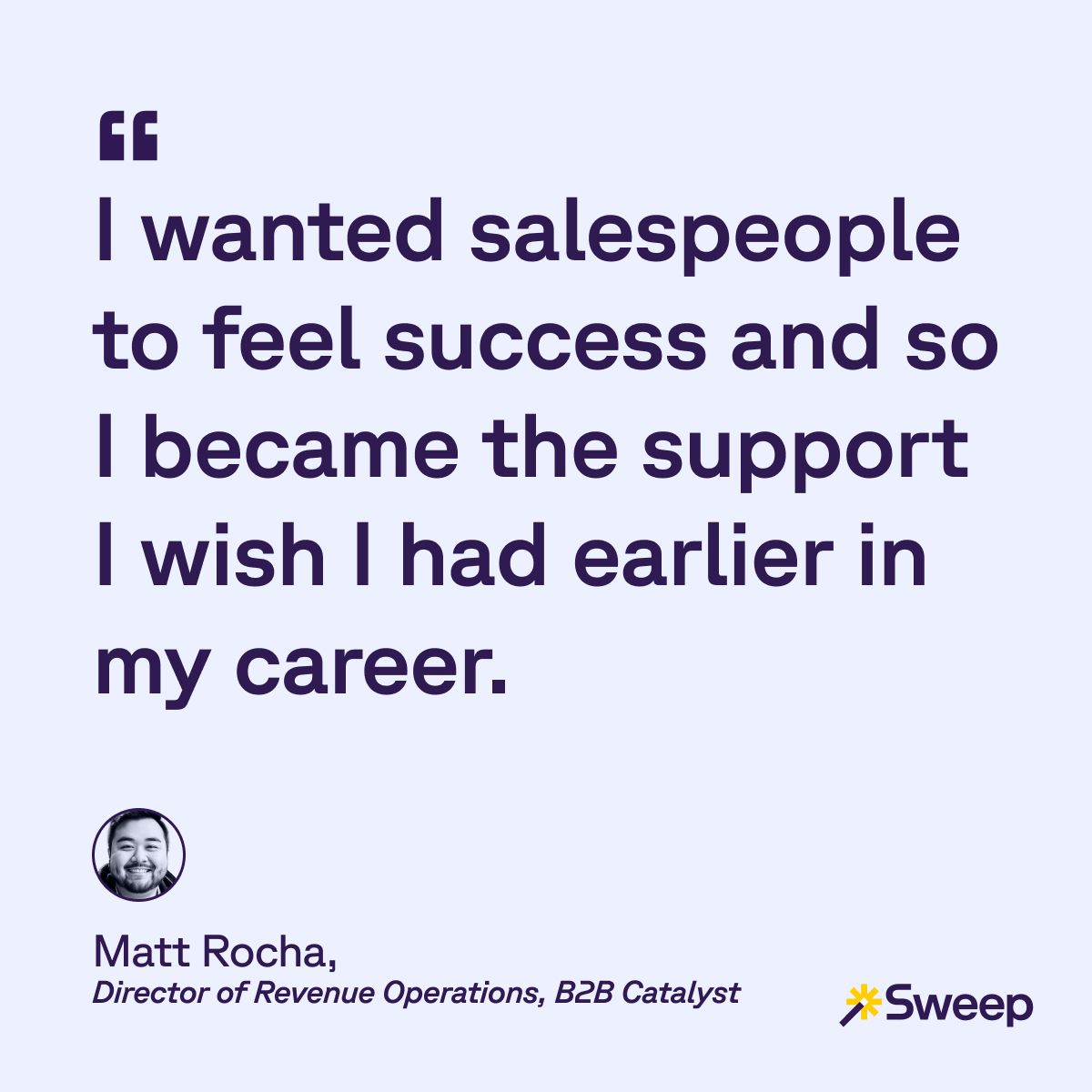
Sweep: What is one "out of the box" idea you had while working in RevOps? Was it successful?
Matt: It's going to sound standard, but proper project management and systems to match. Too many organizations, especially early stage SaaS companies, work in silos/indecision. From the leadership level down there have to be simple drivers everyone can attach what they're working on to. As an example, if work doesn't relate to 3-5 simplified larger strategic initiatives pushed for the quarter, especially in the GTM org, it likely isn't aligned and can't be prioritized.
From there every piece of an organization needs to have proper project management for audits in determining visibility for what is getting shipped in each team, what they are blocked by, and measures they can take to improve.
Often enough, proper visibility, accountability, ownership, and alignment go a long way. But this takes a lot of work, from everyone, to get real impact.
A surprising amount of organizations miss this, and that is why usually I'll notice some of those symptoms expressed as a fragmented Salesforce/Hubspot instance with duplicate/redundant tools that are poorly implemented with little oversight.
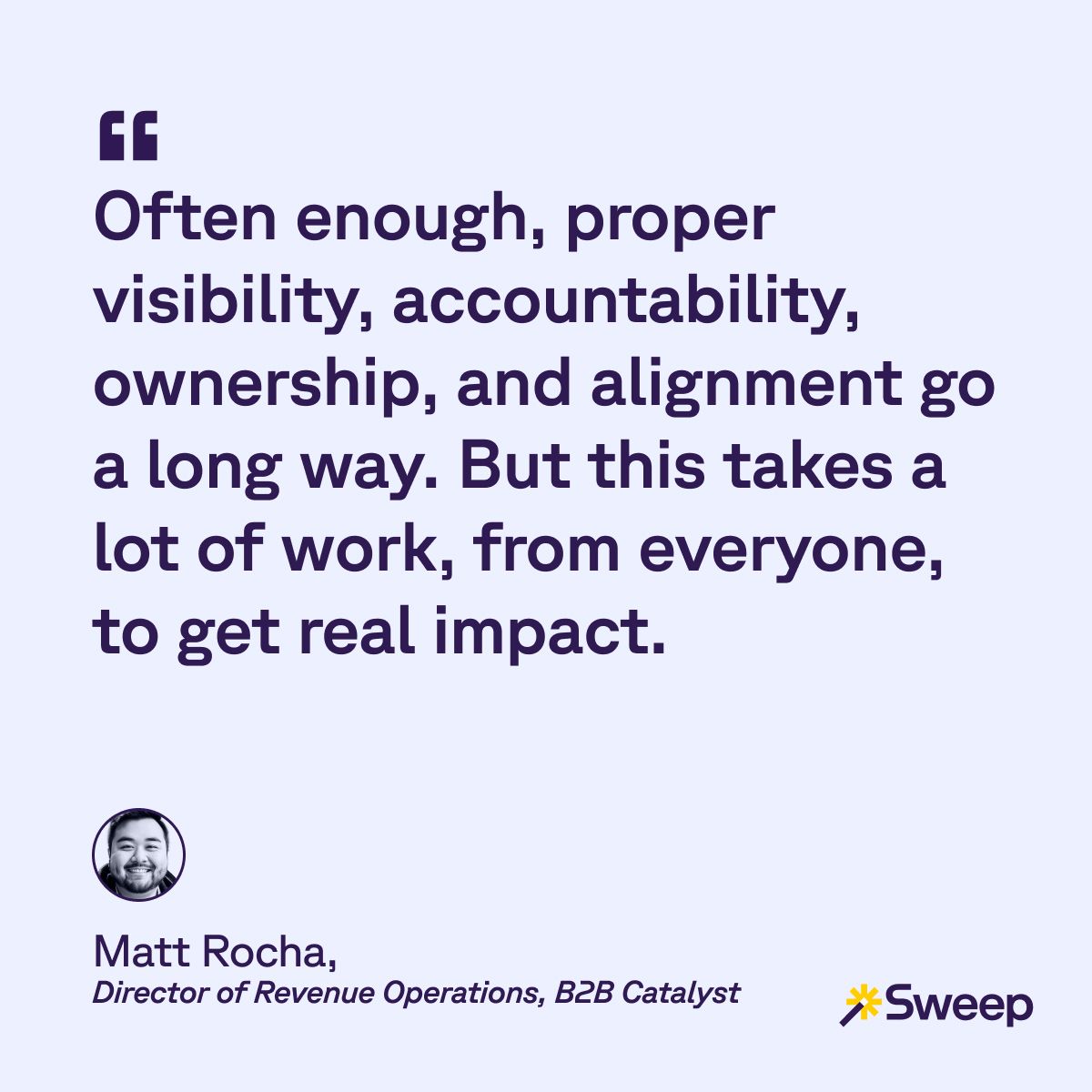
Sweep: How would you describe your Revenue Operations philosophy?
Matt: Slow is smooth, smooth is fast.
I've worked with organizations that grind constantly getting very little done and organizations that seem to go full hands off as fragmented individuals within absent leadership. Wrong assumptions are made in what actually moves a needle in these extremes.
So a lot of times I'll have to scrap built on, undefined work built up through months of pivots/unlearned lessons, replaced with much more simple and realistic actionable targets teams can hit with direct guidance on the activities that will get them there. We then focus on what insights can be tracked/derived to improve iterations in cycles of experimental progress before achieving things we can properly tie back to prior failures.
Sweep: What was one tool or piece of technology you introduced to your team? How did you get buy-in? And what were the results?
Coda has been remarkable. I introduced this to several companies now along with the support of world class engineering help that does not come cheap.
Initially I was able to get buy in through the window of cheap individual licenses. One client I did this with initially shot for 5 licenses that they did not think they would fully use, I was able to negotiate with Coda to get 2 additional seats for free for a year on their behalf.
I had to do a lot of work to built some V1s of things they wanted to try while educating power users on what else they could do to provide ideas. After various requests, we landed on a few teams with early adoption out of the gate for primarily project management and meeting logs.
Fast forward one month, and we had launched an MVP of part of their platform, and full cohesive, united project management across every single department of the org, along with instances of project management they could do with clients in onboarding them to the product, and a fully serviceable way of addressing support tickets.
Each step of the way was seeing small wins, that built into larger successes, that then had "aha" moments peppered along the way. It was incredible to see the change that came out.
At first price was an incredibly sensitive topic, but at the end, this implementation had cost a healthy five figure price tag and no one cared because of what it was doing for everyone there.
Sweep: What do you think will be the next BIG thing in RevOps?
Matt: Tools like Sweep are the future. No one wants to hire someone with a SF Admin cert to carry a 100k price tag just so they can use their instance for basic things.
The next big thing will be taking away complexity for these large A players in the space (APEX/SOQL barriers, CPQ, PRM, etc) and increasing the efficiency of other operators tagging between toolsets.
In the same vein as not wanting to hire an expensive SF admin just to do specific things, "RevOps" agencies like Carabiner Group and RevPartners who rely on overly complex CRM instances to hold onto companies that will not be able to manage/service their complexity in the future, are likely going to be in the past too.
Sweep: Where do you think RevOps will be in 5 years? And where do you think you’ll be in 5 years?
Matt: RevOps will be rebranded to GTM Engineering or something more encompassing beyond just the image of button clicking/report generators many companies block people in today. I think we're just getting started in looking at "RevOps" today as support/operations people and viewing them instead as revenue engine mechanics where totally unmapped market problems need to be solved constantly.
I'm not entirely sure, this year I've been totally bought into agency life and seeing how much learning there can be in solving the problems of 10+ enterprise orgs instead of just leaning deep into one. I feel as if I'm in a totally new realm of my skills being tested every single week and can only imagine if I survive long enough that many things will open up down the line!
Follow us on LinkedIn to see more stories from members of our RevOps community.
